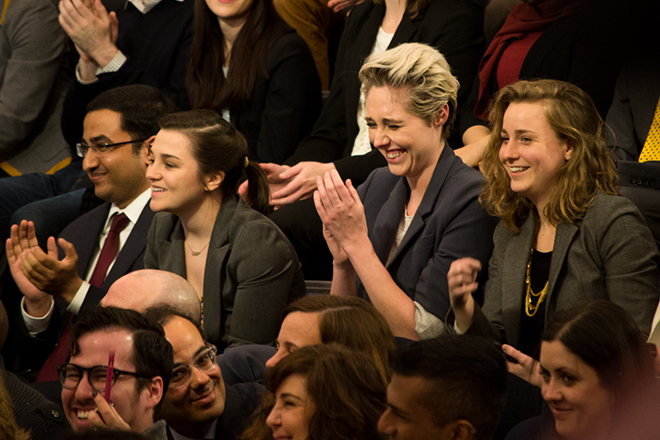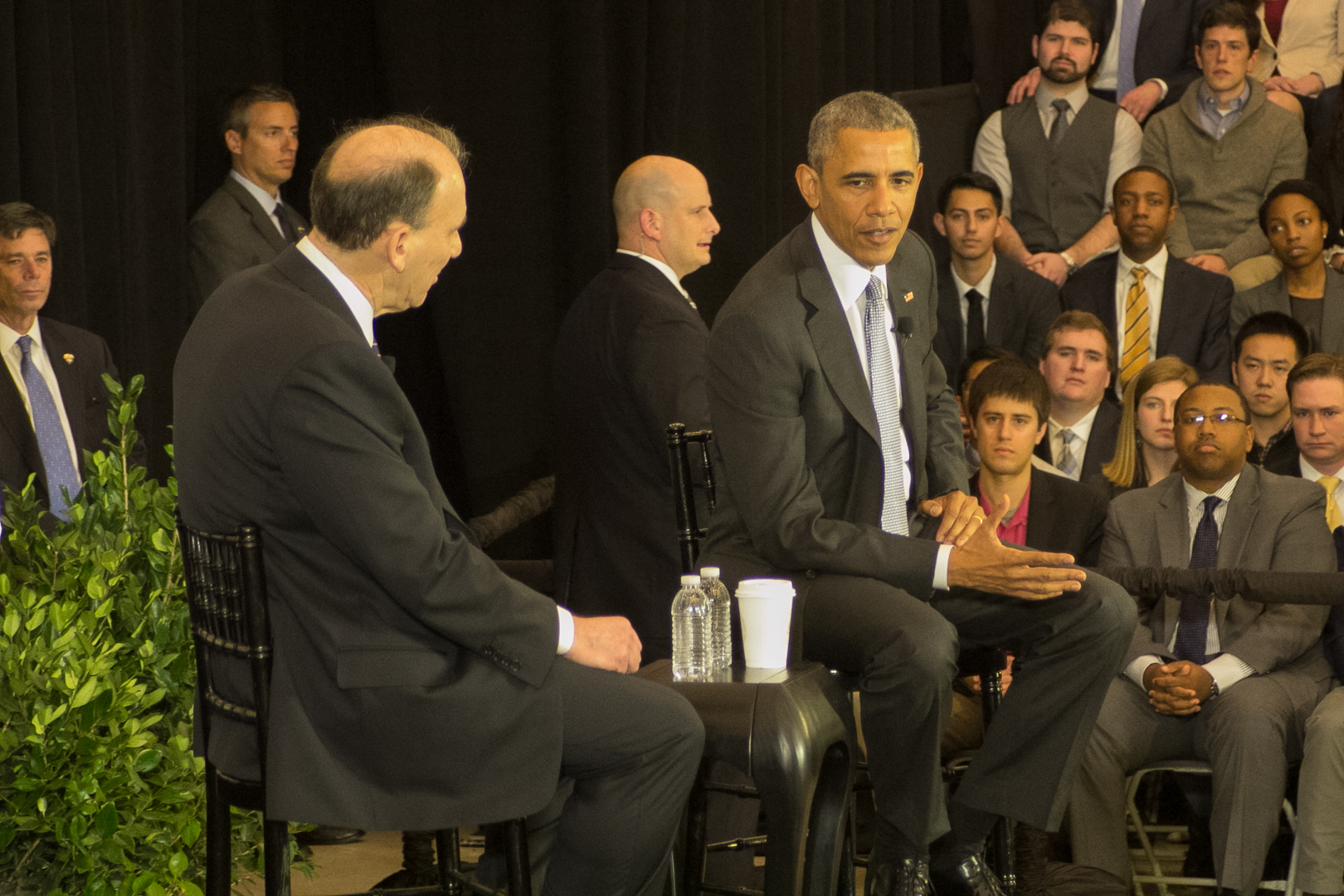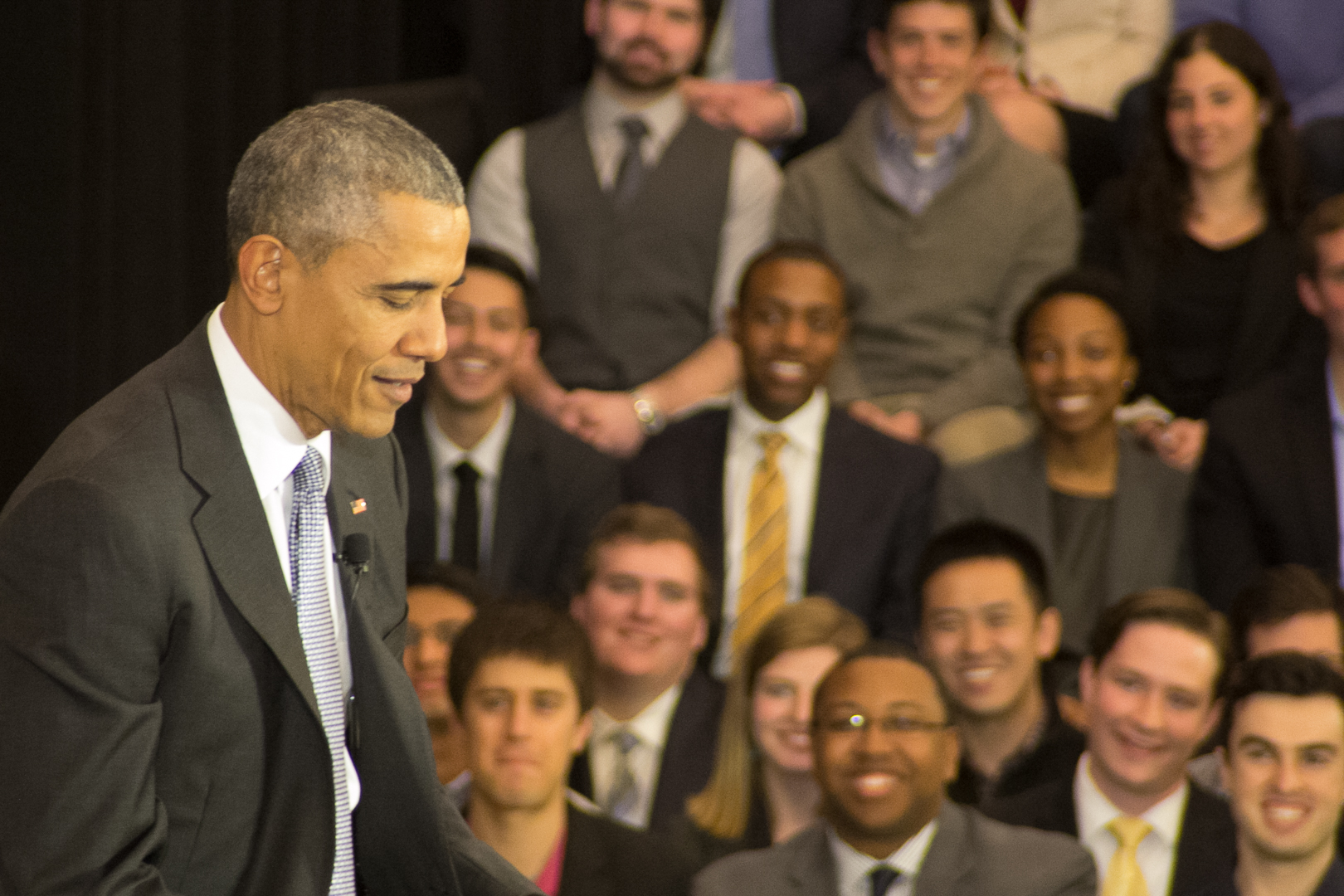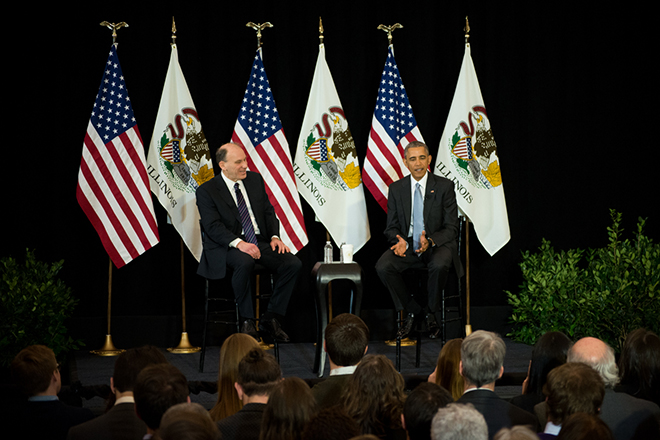President Obama spoke about his nomination of Merrick Garland to the Supreme Court of the United States at the University of Chicago Law School on Thursday.
As a moderate Democrat, Garland received bipartisan praise in the past, but a majority of Senate Republicans, the most vocal among them being Majority Leader Mitch McConnell, are working to block his appointment. They argue that an incoming president’s nomination would more accurately reflect public will. No hearings have been held for Garland yet.
The president’s visit to the University of Chicago, where he taught from 1992 to 2004, serves as a reminder of his background in constitutional law.
University of Chicago Professor David Strauss asked the president a series of questions on how the polarization of the political system is affecting the nomination in front of an audience of law students and faculty.
The president began by stating that Garland “is an extraordinary jurist who is indisputably qualified to serve on the highest court.”
He stressed that Garland’s nomination is instead being disputed for political reasons, saying, “I think in some ways the judicial process is a casualty of some larger trends.”
The trend he spoke most about was political polarization.
“Our politics have become much more polarized in something called the 'great sorting,' because of gerrymandering, because of how our media works," the president said. "Folks either watch Fox News or read the New York Times, but rarely both.”
The president also spoke about how Garland has bipartisan support that spans from current members of the Supreme Court to legal scholars. He said Garland is “ideal now precisely because of the polarization we talked about earlier.”
He talked about about how this polarization has resulted in pushback from Republicans.
He said, “Now we’re in a situation where they’re saying ‘we simply will not consider it, the nomination itself. We’re just going to shut down the process.’”
The president also expanded on his selection process. He said in interviewing candidates he focused on “intellectual integrity” and their ability to “bring a humanity to the job,” rather than their political leanings.
He said, “I want a court that does believe that equality under the law is equality under the law, most just the words — but it is operationalized, it is real.”
A Q&A session with the law students followed the discussion. Students asked a variety of questions, only some of which were about the Garland appointment. Other questions dealt with topics such as the criminal justice system, voting restrictions, potential factions within the Democratic Party and drone strikes.
The president ended the session by telling the students they can make a difference and encouraging them to ask the hard questions of themselves and others.
“The most important office in a democracy is the office of citizen,” Obama said.




